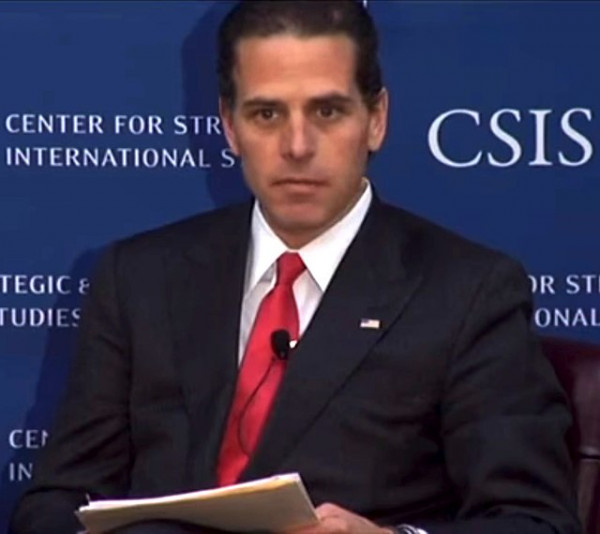Russia Targets Hunter Biden in Unfounded Claims Linking Him to Terror Attacks

The Russian government has accused Burisma Holdings, a Ukrainian energy company once associated with Hunter Biden, of financing terrorist activities. This claim, presented without substantive evidence, marks a significant escalation in the Kremlin's narrative aimed at discrediting political figures associated with the Biden family.
The Investigative Committee of Russia released a statement accusing Burisma, where President Joe Biden's son previously served on the board, of sponsoring terrorist attacks "inside Russia and beyond its borders." These allegations come amidst heightened tensions and follow previous assertions by Russian authorities regarding the orchestration of a deadly attack on Crocus City Hall, which they dubiously linked to Ukrainian operatives.
Compounding the intrigue, Moscow has insinuated the involvement of U.S. officials in allegedly channeling funds to Burisma for the purpose of undermining Russian security. This move is perceived by analysts as an attempt to rekindle Hunter Biden-related conspiracy theories, which gained traction in the U.S. political arena during the lead-up to the 2020 presidential elections.
Critics argue that these accusations seem to be part of a broader strategy by the Kremlin to inject discord into U.S. political discourse, particularly in the context of the upcoming 2024 presidential election. The narrative surrounding Hunter Biden and Burisma has been a contentious issue, with previous claims of corruption and international bribery schemes involving the Biden family being scrutinized and largely debunked.
Observers note that the timing and nature of these allegations bear the hallmark of Russian disinformation campaigns, designed to exploit political divisions and sway public opinion. The Kremlin's track record of deploying such tactics, particularly in the context of U.S. elections, underscores the challenges of navigating the complex web of international relations and political rhetoric.
The spotlight on Burisma, which was liquidated last year, and its alleged role in financing terrorism, adds a new layer to the Kremlin's narrative. Despite the lack of evidence supporting these claims, the implications for Ukraine's defensive efforts and the Biden administration's foreign policy are significant. Russia's attempts to tie the Biden family to the Moscow concert hall attack, attributed to ISIS operatives, reflects a broader strategy to delegitimize support for Ukraine while presenting U.S. foreign policy as compromised by personal interests.
Experts caution against the potential impact of such allegations on U.S.-Russia relations and the broader geopolitical landscape. The use of unfounded accusations to influence electoral outcomes and international perceptions poses a challenge to democratic institutions and the principles of international diplomacy.
As the 2024 U.S. presidential election approaches, the specter of foreign interference and disinformation campaigns looms large. The unfolding narrative around Hunter Biden and Burisma serves as a reminder of the intricate interplay between domestic politics and international relations, with implications that extend far beyond the individuals directly involved.
In light of these developments, the importance of critical analysis and verification of information has never been more pronounced. As the world watches the unfolding drama, the need for a cautious and informed approach to international news and its potential impact on domestic affairs is underscored.














